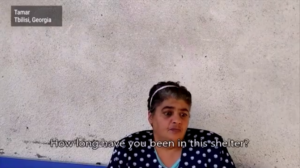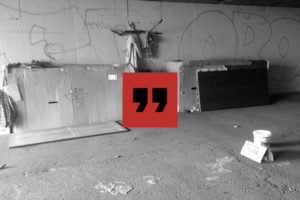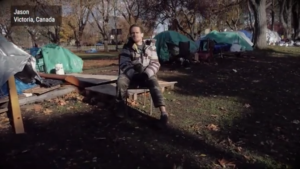Saleem lives on a pavement (sidewalk) in Delhi, along with his wife and three children (a boy and two girls). He works as a rickshaw-puller while his wife collects garbage, to earn a living. When the COVID-19 lockdown was announced, the family thought that the situation would return to normal in a few days. However, the situation did not improve, and they did not have any food left. They went to a shelter but were refused entry, as there was no space available. The free meals being provided by the government was only for residents of the shelter. Consequently, they had to depend on mobile vans distributing food. Moreover, the police would threaten that they would be taken to COVID centres. The family would stay hidden all day in fear of the police.
He says:
“If we had a home, then we wouldn’t have had to run away like this with our children. We would have stored food and other necessities in our home. I would have been able to keep myself and my family safe and protected.
For the last few days, it has been raining heavily. Our old torn tarpaulin sheet isn’t sufficient to protect us from the rain; we get wet. We don’t have the money to buy a new tarpaulin sheet.
Our children used to study earlier but schools are closed now and online classes are being conducted. We don’t have a mobile phone, internet, electricity, or even a place to stay where the children can study.”
— Saleem [New Delhi, India]
The Global Homelessness Action is an international digital initiative that provides people experiencing homelessness the opportunity to collectively claim their right to housing and demand urgent action from governments through video, audio, and written testimonies. Learn more at maketheshift.org/homelessnessaction.



